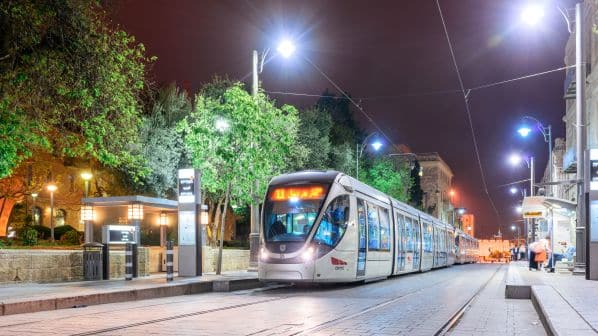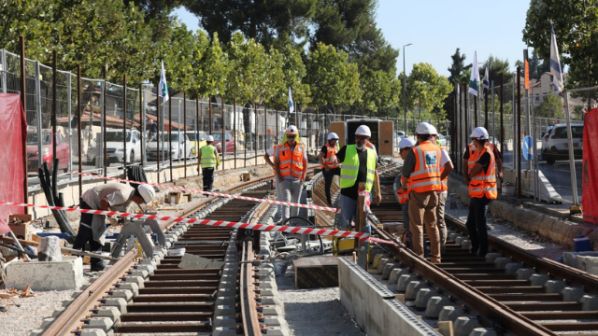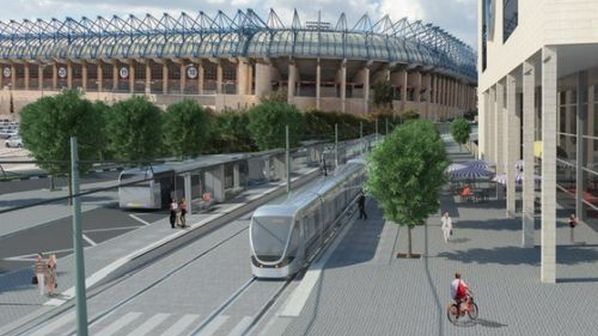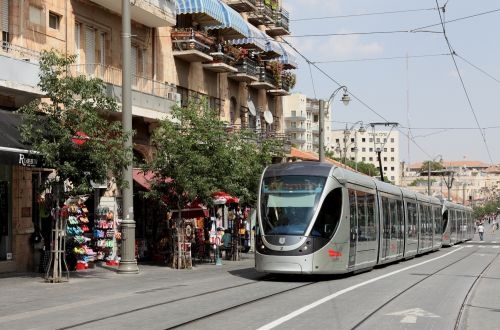THE J-Train consortium has been awarded a public-private partnership (PPP) contract to build, operate, maintain and finance the Blue Line light rail project in Jerusalem.
The J-Train consortium, which comprises public transport operator Dan Bus, construction company Denya Cebus and Comsa of Spain, will build and operate the light rail line between Gilo and Ramot for seven years, with an option to extend this term by an additional 18 years. The maintenance contract will run for 25 years.
The Shekels 9bn ($US 2.5bn) Blue Line will run from Gilo and Talpiot in southern Jerusalem to Ramat Eshkol and Ramot in northern Jerusalem. The line will include a 2km underground section from Jaffa Road in the city centre beneath Ge'ula and Mea She'arim to Sanhedria district.
The line will have 53 stations including three underground. The project also includes the construction of a new depot in the Malkha district to accommodate the 132 LRVs to be manufactured by Pesa, Poland.
The 33m-long three-car LRVs will operate in multiple. Pesa's share of the contract is worth €400m, and includes an option for another 30 LRVs.
Jerusalem’s Municipal Planning Committee granted approval for the Blue Line in February 2016, after preliminary design for the project was carried out by a joint venture of Systra, DEL, and Mati.
The Blue Line is expected to open in stages between 2028 and 2030, although sources in the industry believe that this is an over-ambitious target date.
The TransJerusalem J-Net consortium, comprising CAF and construction firm Shapir, was awarded a €1.8bn PPP contract in August 2019 to undertake the construction of 27km of new track, 53 new stations and new depots for a 6.8km extension to the Red Line and the new 20.6km Green Line. The consortium will also supply 114 new CAF Urbos LRVs for the Green Line, and refurbish the 46 LRVs currently in service on the Red Line.
TransJerusalem J-Net began a 15-year concession to operate and expand the Jerusalem light rail network on April 16 2021, replacing the CityPass consortium.
The Red and Blue lines are expected to carry between 500,000 and 600,000 passengers a day when completed.
For detailed data on light rail projects around the world, subscribe to IRJ Pro.





